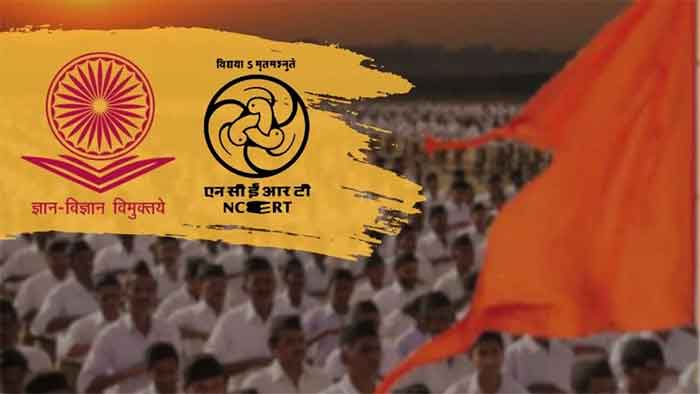Co-Written by Dr. Arathi P Rao, Dr. Sudhamshi Beeram, Dr. Parul Malik and Dr. Urvashi Priyadarshini

The fight against the threats of COVID -19 pandemic has profoundly impacted almost all sectors of mankind. The field of education is a deeply affected strata, with closures of educational institutions and emergency distance-learning plans turning the teachers’ routines and student interactions totally upside down. Conducting online classes has resulted into a psychological baggage for all educators. This has especially affected those working in the school-level education in India because of the scarce presence of technology-driven education in this sphere, in contrast with certain virtual modes being applied in higher education institutions (HEIs) prior to the pandemic. Also, this adaptation to the online mode, is a cumbersome process because the age group of students in schools may not be well versed with technology, compared to the leaners in HEIs.
During the times of COVID-19, such systems have been put in place to minimize the occurrence of infection. School teachers have come under a persistent stress to improve their technical skills without any formal training, adapt to an unfamiliar medium of teaching and learn to engage as well as manage their learners, often very young and having no/limited access to technology, on a virtual platform. Blending online methodology with the class room teaching, affordability and access to the digital devices and internet connection are few from the long list of probable obstacles to the school teachers. Other than the transition to virtual learning, professional burn out, salary deductions and fear of losing their jobs has resulted in increased levels of stress on the school teachers.
The pandemic being one, there has been yet another proposed transition in the Indian Education system- the recent introduction of the New Education Policy (NEP) 2020, accepted on 29 July 2020. This has called for a re-structuring of the pedagogy and curriculum in the schools and a shift to a multi-disciplinary and holistic form of education. The school teachers are, therefore, compelled to embrace the digital shift and develop their modules with e-content as well as to brace themselves for the upcoming anticipated shifts in delivering education. This ‘revolution’ has taken a toll on the mental well-being of the school teachers and they may even be oblivious to the short- and long-term health impacts of getting through these challenges.
Keeping in view of these challenges, enhancement of mental health literacy of school teachers may hold the key to early recognition and management of mental health problems, faced by both- the teachers themselves and the students. These problems may be long drawn for both cohorts, with the prevailing uncertainty regarding the shift back to the offline mode as well as due to NEP implementation. Also, whenever the classroom teaching resumes, the educational institutions anticipate a substantial increase in the demand to support student mental health, as many students might return to school after having experienced loss of family members, financial pressures, social isolation or even living in broken homes etc. Also, aiding the students in adapting to the multidisciplinary education system proposed by NEP, becomes the responsibility of these teachers. It, therefore, becomes crucial to support the mental health and wellness of teachers who in turn can be front runners in addressing the mental health of the youth. Although some teachers have received training, evidence present currently suggests the lack of efficacy on the part of teachers with respect to mental health literacy.
The ability to recognize specific psychological disorders and distress can possibly be enhanced through activities such as mental health knowledge assessment as well as by a regular and systemic screening by the school psychologists and scholars. Developing an understanding of the meanings of psychiatric terms and being reasonably knowledgeable about the common symptoms is a crucial step to ably reflect upon psychological problems. Prevalent beliefs about the causes often influence the attitude of teachers and students towards mental illness. A change in beliefs may be brought about by incorporating causes and risk factors as a part of the orientation and curriculum. Recognition of the importance of good mental health could assist in the alteration of the patterns of help-seeking and response to the treatment. Accessible professional help from the counselors and psychologists within the educational institutions could prevent delays in the detection and management of any mental health disorder.
The other important component of mental health literacy for school teachers is the ability and knowledge of how to help others, especially their students. Enhancing the relationships between teachers and pupils is a key here to build rapport and trust for the students to feel comfortable in sharing and discussing their concerns and problems. 2 In a survey, 70% teachers expressed that they had not received professional education regarding mental health and were unable to appropriately respond to students’ mental health needs.2 This may have worsened due to the pandemic. Additionally, the recent ‘infodemic’ highlighted that mis- and disinformation can be harmful to people’s physical and mental health.3 In spite of being educators, the ability to gain access to, understand and use the information in ways that promote and maintain good mental health is minimal in them.4
To conclude, when teachers return to work in the future, the classrooms they re-enter will look quite different from those that they left behind in March 2020. While the physical component of health literacy does get acknowledged, mental health is comparatively and conveniently overlooked. Stress in adults can often influence young minds, which is why addressing teachers’ mental health is important. Mental health literacy and its components, at the level of school teachers, can thus ensure first and foremost, their own wellbeing, as well as could anticipate prevention, early identification and management, self-help and support to their students to become ‘mental health literates’. Investing in training the teachers will not only help them maintain their mental health but will also be beneficial for their pupils.
Dr. Arathi P Rao is the Coordinator of MPH Programme and the Head of Manipal Health Literacy Unit at the Prasanna School of Public Health, Manipal Academy of Higher Education (MAHE), Manipal, India.
Dr. Sudhamshi Beeram has a bachelor’s degree in Naturopathy and Yogic Sciences and is currently a postgraduate student, pursuing Master of Public Health (Global Health) at Prasanna School of Public Health, Manipal Academy of Higher Education (MAHE), Manipal, India
Dr. Parul Malik is a medical doctor with a Master of Public Health (Global Health) degree from Prasanna School of Public Health, Manipal Academy of Higher Education (MAHE), Manipal, India.
Dr. Urvashi Priyadarshini is a dental surgeon and is currently a postgraduate student, pursuing Master of Public Health (Health Policy) at Prasanna School of Public Health, Manipal Academy of Higher Education (MAHE), Manipal, India.
References
- Jorm AF. Mental health literacy: Public knowledge and beliefs about mental disorders. The British Journal of Psychiatry. 2000 Nov;177(5):396-401.
- Whitley J, Smith JD, Vaillancourt T. Promoting mental health literacy among educators: Critical in school-based prevention and intervention. Canadian Journal of School Psychology. 2013 Mar;28(1):56-70.
- World Health Organization. An ad hoc WHO technical consultation managing the COVID-19 infodemic: call for action, 7-8 April 2020.
- Carr, D. and Frank, D., 2019. We Need to Improve Teachers’ Mental Health Literacy. The University of British Columbia
SIGN UP FOR COUNTERCURRENTS DAILY NEWSLETTER















































